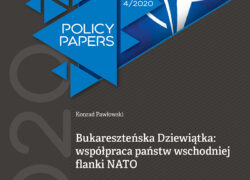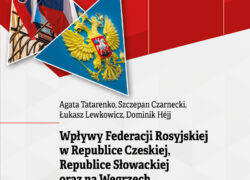

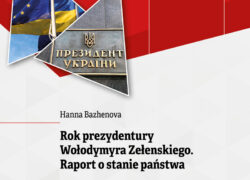
Rok prezydentury Wołodymyra Zełenskiego. Raport o stanie państwa (en translation)
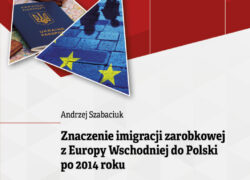
Znaczenie imigracji zarobkowej z Europy Wschodniej do Polski po 2014 roku
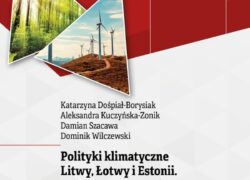
Polityki klimatyczne Litwy, Łotwy i Estonii. Priorytet czy margines?
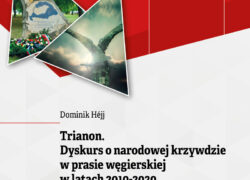
Trianon. Dyskurs o narodowej krzywdzie w prasie węgierskiej w latach 2010-2020
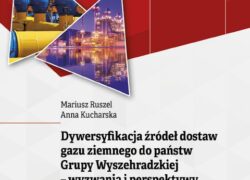
Dywersyfikacja źródeł dostaw gazu ziemnego do państw Grupy Wyszehradzkiej – wyzwania i perspektywy rozwoju (en translation)
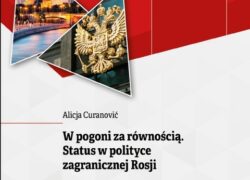
W pogoni za równością. Status w polityce zagranicznej Rosji
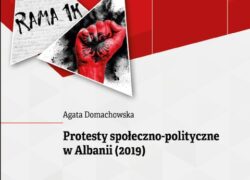
Protesty społeczno-polityczne w Albanii (2019)
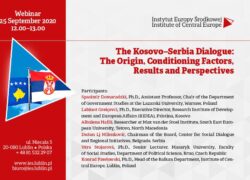
Webinar: Kosovo-Serbia Dialogue: The Origin, Conditioning Factors, Results and Perspectives, September 25, 2020
Webinar: The Kosovo-Serbia Dialogue: The Origin, Conditioning Factors, Results and Perspectives
25 September 2020
12:00 am – 1:00 pm
Participants:
- Spasimir Domaradzki, Ph.D., Assistant Professor, Chair of the Department of Government Studies at the Lazarski University, Warsaw, Poland
- Labinot Greiçevci, Ph.D., Executive Director, Research Institute of Development and European Affairs (RIDEA), Pristina, Kosovo
- Albulena Halili, Researcher at Max van der Stoel Institute, South East European University, Tetovo, North Macedonia
- Dušan Lj Milenković, Chairman of the Board, Center for Social Dialogue and Regional Initiatives, Belgrade, Serbia
- Věra Stojarová, Ph.D., Senior Lecturer, Masaryk University, Faculty of Social Studies, Department of Political Science, Brno, Czech Republic
- Konrad Pawłowski, Ph.D., Head of the Balkan Department, Institute of Central Europe, Lublin, Poland
